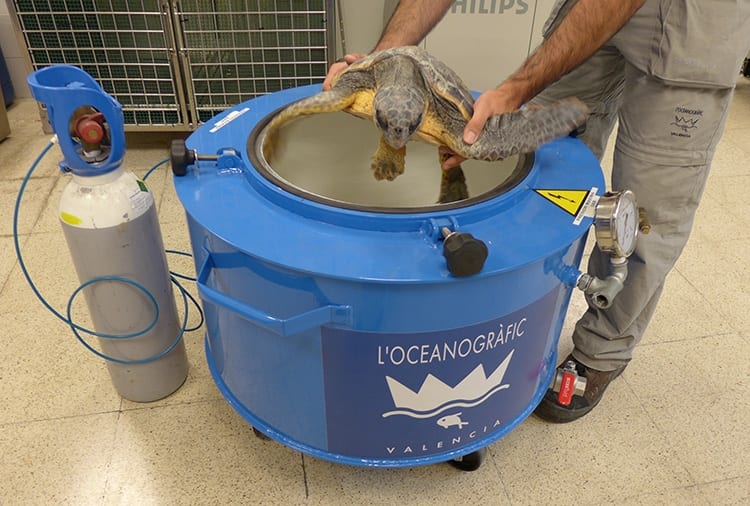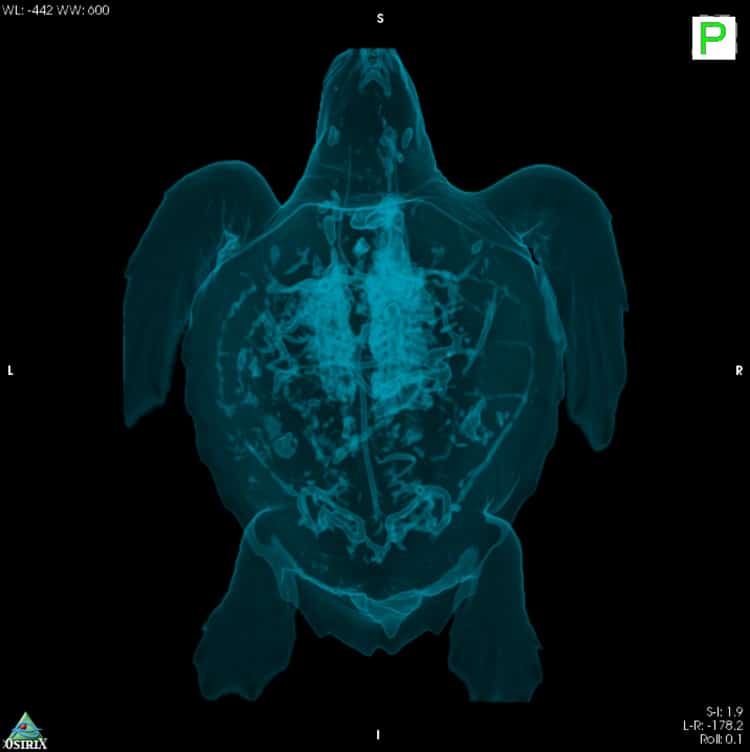Decompression sickness (the bends) in sea turtles: A new conservation threat
November 12, 2014
An international research team led by Daniel García (Director of Veterinary Services), Oceanográfic, Ciudad de las Artes y las Ciencias in Spain reports in the scientific journal Diseases of Aquatic Organisms that decompression sickness (DCS), also known as the bends, has been diagnosed for the first time in a live air-breathing, marine vertebrate—the loggerhead sea turtle.
The two sea turtles diagnosed with DCS were accidentally caught in commercial fishing nets and were brought to the Oceanographic of Valencia thanks to collaboration with local fishermen. The turtles responded to human recompression protocols and were released back into the Mediterranean Sea.
This finding has direct implications for the conservation of sea turtles since mortality following fisheries interaction could be much higher than previously estimated. Currently, bycaught sea turtles that are initially active are usually immediately released and are not considered lethal interactions. This work suggests that some of those live turtles might have DCS and may subsequently die after release back to sea. These new findings provide new guidelines for the treatment of turtles accidentally caught in fishing nets.
Scientific collaborators included Antonio Fernández and his team from the University of Las Palmas de Gran Canaria, Spain, Dr. Michael Moore from Woods Hole Oceanographic Institution (WHOI), U.S., and Dr. Paul Jepson from the Institute of Zoology (Zoological Society of London), UK.
“This study is ground breaking in that for the first time it shows a clinical diagnosis of decompression sickness in a non-human diving vertebrate. Such a diagnosis is made by reversal of clinical signs by repressurization,” said Dr. Michael Moore, director of the Marine Mammal Center at WHOI and a marine mammal veterinarian. Moore consulted on data interpretation for this study and assisted with manuscript preparation. “The study provides a new backdrop for understanding a range of recent findings showing abnormal marine mammal gas accumulation, where normal diving behavior has been disrupted.”
The authors hope that these new findings, including the successful treatment of DCS in marine turtles, can be applied to the conservation of these species worldwide. Marine turtle populations are declining in the Mediterranean Sea and six out of seven sea turtle species are endangered worldwide.
For more information:
Daniel García Párraga
Email: dgarcia@oceanografic.org
Antonio Fernández
Email: afernandez@dmor.ulpgc.es


